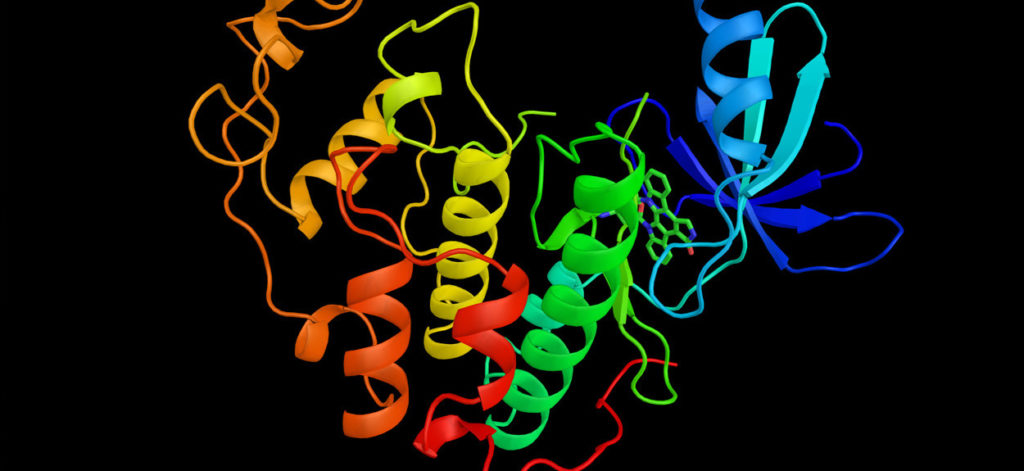OUR SCIENCE

Our Science
Like other diseases, it has been for many years cancer patients were treated with a “one size fits all” strategy based on phenotypic screening of organs. This approach was challenged until the revolutionary advancement in cancer genetics, which forms a basis that cancer is caused by diverse array of genetic mutations and dysfunctional biological pathway. Among these, protein phosphorylation, one of the most prevalent , post-translational modification of protein, is tightly regulated by specific protein kinases that transfer phosphate group to the amino acid residue. To our knowledge, there are in total 518 kinases in human genome, while 90 of them are classified in the category of tyrosine kinases (58 of them are receptor tyrosine kinase RTK; the remaining are non-receptor tyrosine kinase. Today, there are 38 Kis approved based on more than 30 years of research efforts, and more exciting areas are expanded into immuno-regulatory kinases such as RTK TAM family and transcriptional kinases.
In carcinogenesis, the aberrant activation of protein phosphorylation, particularly by RTKs has been frequently described. Mutation or gene amplification of tyrosine kinase signaling further promote the carcinogenesis process, including survival, proliferation, motility, and metabolism as well as escape from immune surveillance. Furthermore, tumor cells can promote their growth by recruiting and communicating with other type of cells, such as mesenchymal- and hematopoietic originated cells, in the tumor microenvironment (TME). TKIs were have been implicated in inactivation or normalization of dysregulated TME components leading to cancer regression.
Kinase inhibitors that abate established tumors may sensitize the remaining tumor to immunotherapy, which in turn could confer durability to the kinase inhibitor-mediated remission. Furthermore, by interfering with oncogene addiction and triggering senescence, kinase inhibitors may also facilitate tumor clearance by reactivated T cells. New evidence is emerging that kinase oncogenes can play a role in immune escape and T cell checkpoint inhibitor resistance. Reversing the immunological tolerance microenvironment also supports the combination of TKIs and immunotherapy. Therefore, we invested our efforts into discovering existing kinase inhibitors with unique pattern of target spectrum that can synergize effectively with T cell checkpoint blockade.
Cancer is characterized by uncontrolled tumor cell proliferation resulting from aberrant activity of various cell cycle proteins. Thus, cell cycle regulators are considered attractive targets in cancer therapy. We currently focus on proteins that directly regulate cell cycle progression such as Wee1.